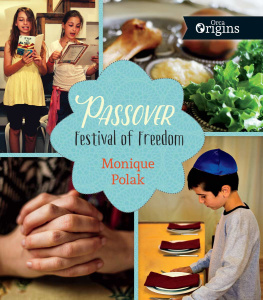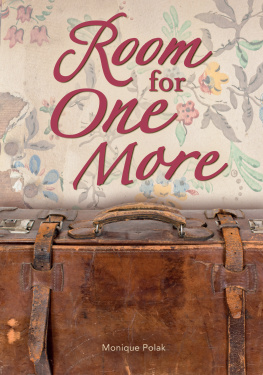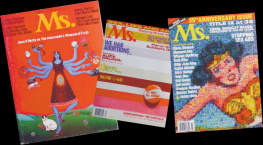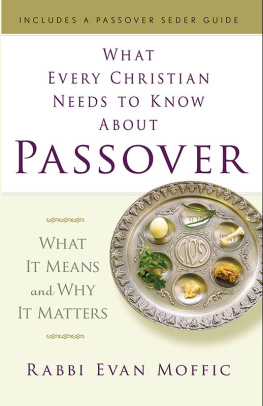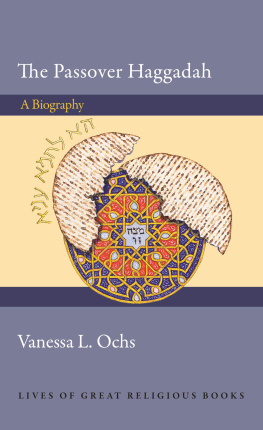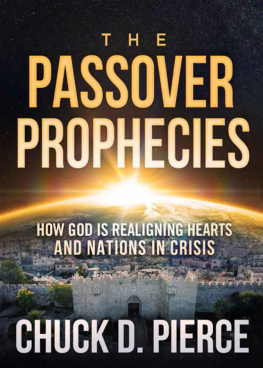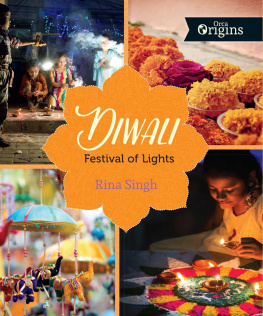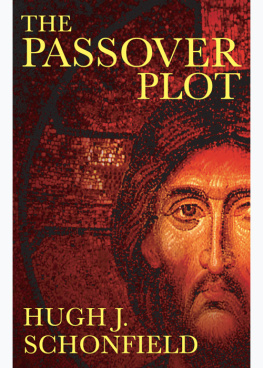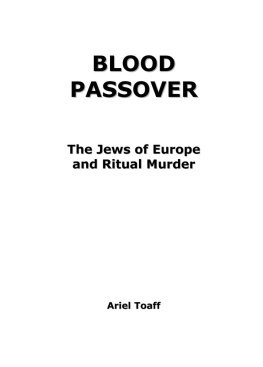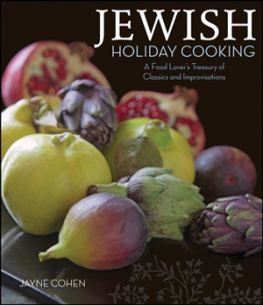Text copyright 2016 Monique Polak
All rights reserved. No part of this publication may be reproduced or transmitted in any form or by any means,electronic or mechanical, including photocopying, recording or by any information storage and retrieval system now known or to be invented, without permission in writing from the publisher.
Library and Archives Canada Cataloguing in Publication
Polak, Monique, author
Passover: festival of freedom / Monique Polak.
(Orca origins)
Includes index.
Issued in print and electronic formats.
ISBN 978-1-4598-0990-1 (bound).ISBN 978-1-4598-0991-8 (pdf).
ISBN 978-1-4598-0992-5 (epub)
1. PassoverJuvenile literature. I. Title.
bm695.p3p64 2016 j296.4'37 c2015-904482-0
c2015-904483-9
First published in the United States, 2016
Library of Congress Control Number: 2015944491
Summary: Enlivened by personal stories, Passover illuminates and celebrates how ancient Jewish traditions are kept alive in the modern world in this work of nonfiction for middle readers.
Orca Book Publishers gratefully acknowledges the support for its publishing programs provided by the following agencies: the Government of Canada through the Canada Book Fund and the Canada Council for the Arts, and the Province of British Columbia through the BC Arts Council and the Book Publishing Tax Credit.
Design by Rachel Page
Front cover photos by PhotoStock-Israel.com, Dreamstime.com, Shari Nakagawa, Shutterstock.com, iStock.com
Back cover photo by iStock.com
ORCA BOOK PUBLISHERS
www.orcabook.com
Acknowledgments
Thanks to the many people who agreed to be interviewed for this book. Special thanks to Ben Younger and Liselotte Ivry, who spoke candidly to me about their experiences during the Holocaust. Thanks also to my mom, Celien Polak, and to Deena Sacks Creatchman, Sylvia Lerman, Michael Lerman, Sean Lerman, Sheldon Popliger, David Guttman, Glenda Ephron Cooper, Michele Schneider, Bram Ogus, Rabbi Leibele Rodal, Rabbi Stephen Berger, Nira Friedman, Amit Asher Shapira, Rabbi Barbara Aiello, Rabbi Elina Bykova and Susannah Heschel for sharing your stories and teaching me so much about Passover. Thank you to Benjamin Ickovich (and his parents Avi and Nora Ickovich) for participating in a photo shoot for the cover. Thanks to Robin Stevenson, who read early drafts of this book, to Betsy Gray who checked the manuscript for errors and to my smart and sensitive editor Sarah Harvey.
To Carolyn, sister and friend
Introduction
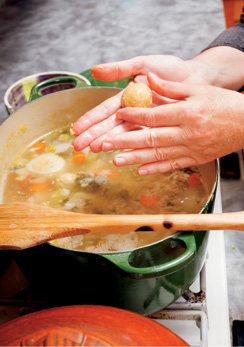
Matzo ball soup is a staple at the seder meal.
Patrick Heagney/iStock.com
When I was growing up , I often attended the Passover seder at my friend Debbis house. Debbi lived around the corner from us in Cte Saint-Luc, a Montreal suburb that was, in the 1960s and 70s, predominantly Jewish.
I was mostly interested in the foodthe cracker-y matzo , the chicken soup with matzo balls, the brisket and the roast chicken. Because I dont speak Hebrew , there were many parts of the Passover story I did not understand. And to be honest, I didnt pay much attention to the parts of the story that Debbis father told us in English.
Though my own family is Jewish, we are not observant. Growing up, we hardly ever went to synagogue (a Jewish house of worship), nor did we observe the holidays or keep a kosher home, meaning we did not follow Jewish dietary laws. In part, that could be because during the Holocaust , my mother, Celien, who comes from the Netherlands, spent nearly three years in a Nazi concentration camp . She was not an observant Jew before the Holocaust, but she was even less interested in religion afterward. If there is a God, she once said to me, how could He have let the Holocaust happen?
So, until now, my own connection to Judaism has focused mostly on the Holocaust. At Marianopolis College, where I teach in Montreal, I have taught courses on Holocaust literature. In 2008, I wrote a novel for young adults based on my mothers wartime experiencesstories she kept secret for more than sixty years.
But when I was asked to write this book about Passover, I agreed immediately. Thats because I knew it was time to broaden my own understanding of Jewish history and religion.
Like Christianity and Islam, Judaism is monotheistic, which means that Jews believe in one god.
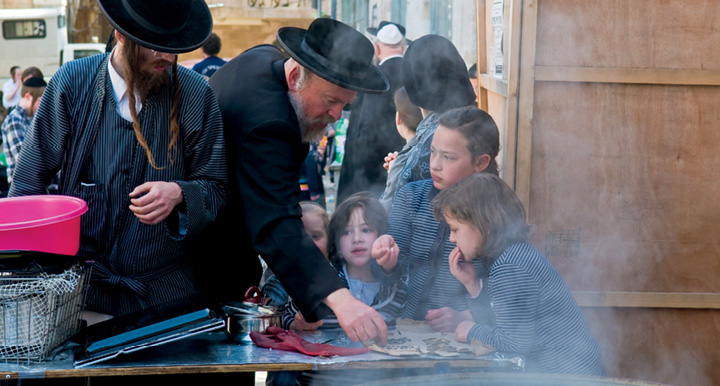
Ultra-Orthodox Jews preparing for Passover.
kobbydagan/iStock.com
I live in Montreal, a city where many Holocaust survivors settled. Like my mother, who is now 86, these Holocaust survivors are reaching the end of their lives. As part of my research for this book, I spoke with dozens of people about what Passover means to them. Two of the people I interviewed are also Holocaust survivorsBen Younger and Liselotte Ivry.
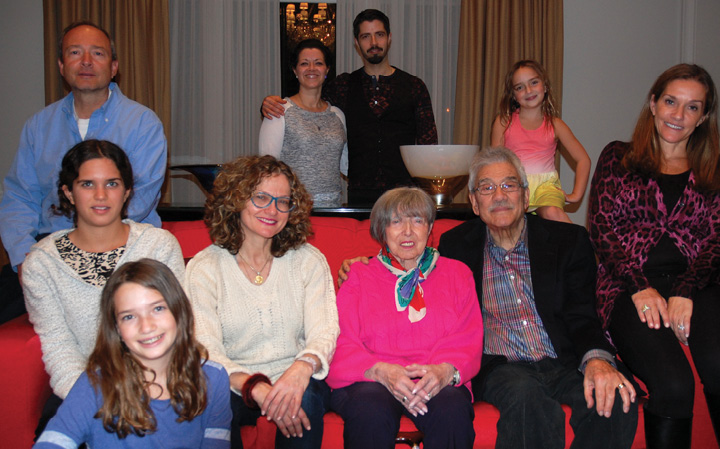
When I was growing up, my family and I did not celebrate Passover. This family picture was taken in 2015. Im in the beige sweater, wearing glasses, and Im with my parents, Celien and Maximilien Polak; my brother Michael (blue shirt); my sister Carolyn (at the right); and some of my nephews and niecesJennifer and Jason Beveridge (at the back); Lauren Abrams (in pink and yellow); Erica Lighter (also in beige) and Claudia Lighter (at the front).
Courtesy
Learning about Passover and hearing so many stories about this holiday has deepened my connection to my religion and to the Jewish people who came before me. That is why in 2015, for the first time, I hosted the Passover seder at my house.
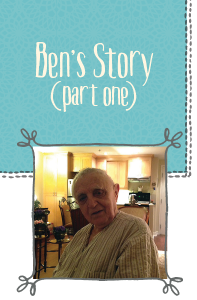
Ben Younger in his apartment in Dollard-des-Ormeaux.
Courtesy Monique Polak
Benzion Younger is nearly 90, but when he remembers celebrating Passover as a child in Romania, his brown eyes shine like a boys. Somehow, when I listen to his story, I see past Benzions lined face and the bald patches on his scalp. The more he tells, the easier it is to imagine Benzion, who has used the name Ben since he immigrated to Canada in 1948, as a mischievous boy growing up in a loving, tightknit family.
Passover was the nicest holiday for me. Because of the food. It was the best food ever, Ben says.
Because Bens father raised geese in the small town of Sapinta, the family often ate goose at Passover. And of course, there was always matzo, the unleavened bread eaten by Jews around the world during the Passover festival.
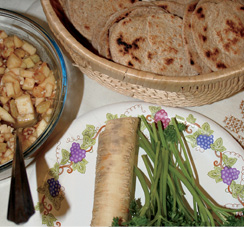
Some foods prepared for a Passover seder: (clockwise from top) matzo, parsley, horseradish, charoset.
Wikipedia
In Sapinta, where Ben lived until he was 17, there was a special bakery that opened only for Passover. Local Jewish families placed their orders for matzo well in advance of the holiday. Bens mother, Ruchel, always ordered twenty kilograms (44 pounds) of matzoenough for herself and her husband, Gitman; their three children (Ben had two younger sisters, Perl and Raizele); and her mother, Bens grandmother, Esther Ita, who lived with the family.

